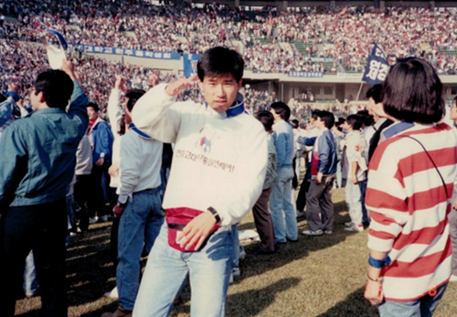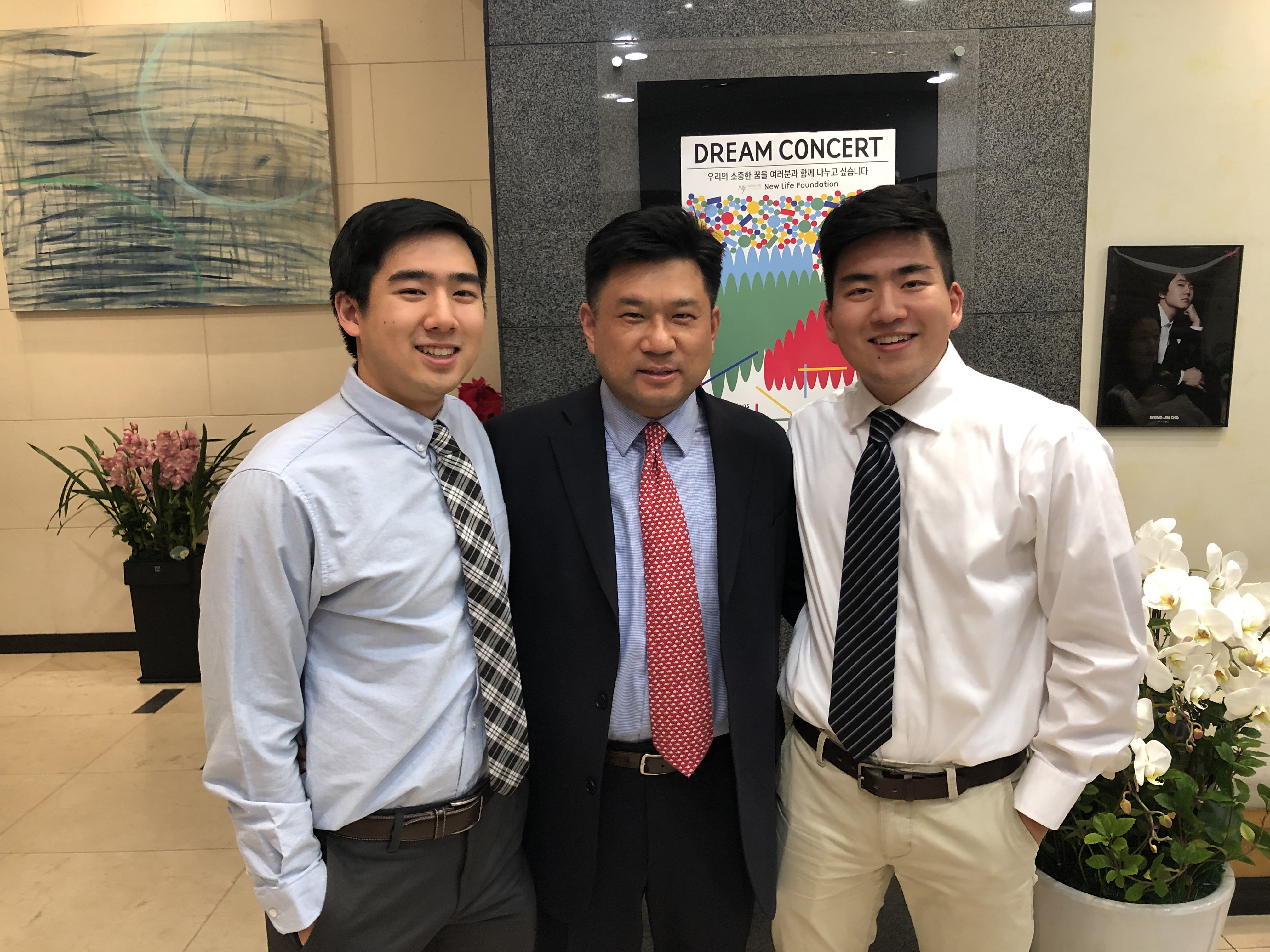Current position (2018): Mastercard – Vice President – Global City ID – Smart Cities
Why did you study abroad? I wanted to better understand the global economy in which we lived. Growing up in the U.S., it was easy to think America was the epicenter of anything and everything geo-political and global economy-wise—and to a certain point, it was and has been. But there was a draw for me to see another part of the world that would help inform how I viewed the globe, shape who I was, hone my language skills and make new friends along the way.
Why did you specifically choose this program? My parents immigrated to the United States from South Korea in the 1960s. Having grown up with a strong sense of my identity rooted in both Korean and American cultures, I was specifically drawn to learn more about my ancestry at the local level; tracing my genealogy to the Balhae Kingdom to Dae Jo-young, the founder of the largest land-based kingdom in Korea, and being able to test my language skills daily with locals and seeing first-hand how South Korea was showcasing itself on the world stage, after years of government-backed economic growth and an evolving democracy manifested by the almost-weekly student demonstrations. The opportunity to attend the Seoul Olympics in 1988 was an added incentive as well!
Best memory: There are so many fond memories I have, from the long-lasting friendships to meeting for the first time, Korean-Germans, -Dutch, - Japanese, just to name a few- it was an eye-opening experience to see the Korean diaspora returning to their mother country, and searching for ancestral ties to Korea.
Greatest challenges: In 1988, Koreans were still very much a homogenous society and culture (and still is to a certain extent today). Consequently, many saw me as a Korean (national), even though I was an American citizen. The expectation to speak Korean fluently, behave and think just like a Korean was an immediate challenge- for example, on multiple occasions, I was shamed that I could not speak Korean fluently, especially as I ventured out into more rural areas.
Biggest Surprise: The stinging and lingering effects of tear gas during student demonstrations. I saw so many Korean students who were so involved in the sea change in national (and international) politics, and a day that did not go by when I wasn’t asked a question on U.S. policy on the Korean peninsula, or a topic on democracy- all were so vested in the changes going on nationally at the time. Separately, I was surprised by the many varieties of kimchee that touched my palette!
How did your study abroad program affect your college experience? I came back to campus in the spring semester of 1989 with a deeper appreciation of my academic pursuits. Courses that I was taking and research that I was doing for Professor Paul Kuznets, for example, seemed to have had a heightened poignancy. Studying abroad my junior year, was single-handedly the highlight of my college experience. I would not have traded it for anything else during my time at IU.
What, if any, cultural practices have you retained from your time abroad? My study abroad impacted me on many levels, and certainly, from a cultural standpoint, I am still very active in the Korean community here in the States. Having studied abroad has allowed me to broaden my outlook in the diverse world we live, and appreciate the many cultures that are part of the evolving globe we see daily now.
Have you passed on the importance of studying abroad to others? If so, how/why? I recall a time when a freshman university student asked me what was my college highlight. I responded that my study abroad was the best experience ever at the time. A few years later when I reconnected with that student, I found out that she had studied abroad in Europe; she shared that it was my enthusiasm and outlook on the study abroad experience that prompted her to look into going overseas herself. She was just one of many that I had the privilege of sharing my study abroad experience- including my college son, who went to Italy last spring for his junior year abroad.
Explain the impact study abroad has in the workplace/in your career: I think the experience gave me an appreciation and affinity for the global marketplace, and as such, opportunities to pursue internationally-affiliated assignments came about because of my interest in international business. For example, even though my first job out of college was in a finance area for the largest North American insurance company at the time, I was asked to support international assignments as my company was seeking Korean joint-ventures. Separately, my internship during B-school was at a management consultancy based out of Seoul. Today, I have the role in increasing Mastercard’s presence for Smart Cities across the globe. I think my study abroad experience in college certainly planted the seed to give me the cultural sensitivities and appreciation to other cultures and their peoples.
Complete this sentence: If I could do it over, I would... do exactly the same thing. It was a perfect experience, and I would not have changed the courses I selected, the summer internship at a Korean chaebol, or the weekend excursions I took nearly every week or so. They were all so memorable.
What advice would you have for a student considering study abroad? After you’ve decided to study abroad, set your own path to integrate with the locals (and less on interacting with fellow Americans / “tourists”); you’ll learn and grow more exponentially, despite the initial challenges.



